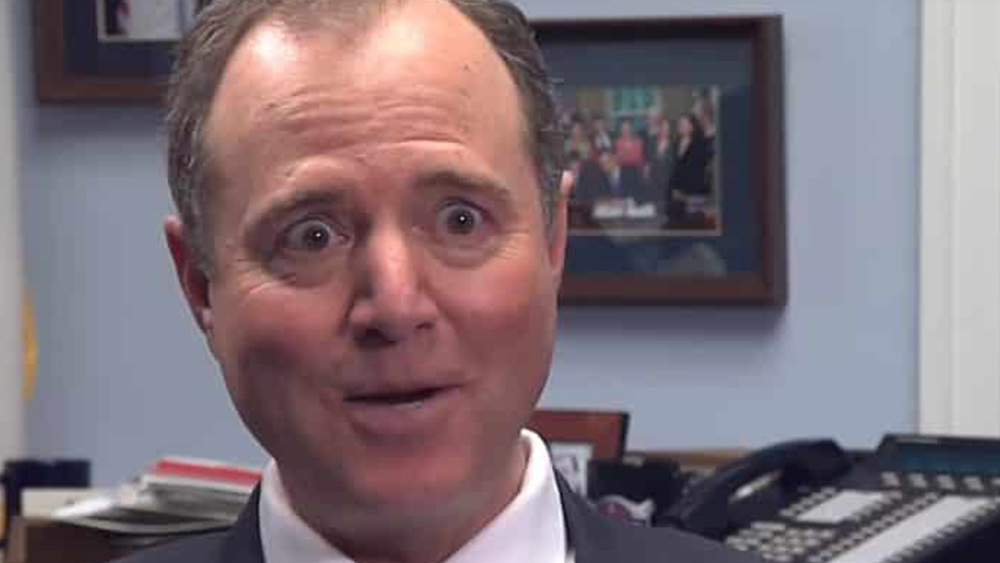 Parler
Parler Gab
Gab
- RFK Jr. adopted ACIP's recommendation to expand RSV vaccines for adults aged 50–59, despite disbanding the panel weeks earlier over conflicts of interest.
- The policy was quietly enacted June 25 without input from Kennedy’s newly appointed advisors.
- Multiple RSV vaccines, including GSK and Pfizer shots, remain unvetted in injury compensation programs.
- Kennedy also approved a new pentavalent meningococcal vaccine for adolescents—funded by taxpayers through the VFC program.
- Critics question why Kennedy dismantled ACIP only to adopt their policies, raising suspicions of industry influence behind closed doors.
A vaccine panel disbanded — then rubber-stamped
In April 2025, ACIP voted 14-0 (with one abstention) to expand RSV vaccine recommendations, citing "clear benefits" for at-risk adults under 60 — despite lacking long-term safety data. Just two months later, Kennedy dissolved ACIP, alleging undisclosed financial ties among members. Yet, instead of halting questionable recommendations, Kennedy quietly signed off on the RSV expansion, leaving the public in the dark. Dr. Jane Zucker, a former ACIP advisor, argued during the April meeting that vulnerable patients, such as transplant recipients, "would clearly benefit" from RSV shots. But missing from debate was any discussion of injury reports or the glaring lack of liability for manufacturers. With RSV vaccines newly added to the Vaccine Injury Compensation Program (VICP), injured patients must navigate a government-run claims process that rejects 70% of cases. Meanwhile, COVID-19 shot injuries filed under the Countermeasures Injury Compensation Program (CICP) have surpassed 12,233 claims, including 9,221 from the jab itself.Pentavalent vaccine push — who profits?
Kennedy also accepted ACIP’s recommendation to add GSK’s pentavalent meningococcal vaccine (Penmenvy) to the immunization schedule, despite already approving Pfizer’s nearly identical shot in 2023. Both vaccines, marketed as superior to older options, will be bankrolled by taxpayers through the Vaccines for Children program — a lucrative win for the vaccine industry, as their fraud and manipulation continues unchecked. Historically, meningococcal vaccines have faced scrutiny for low efficacy rates and high adverse reaction risks, including Guillain-Barré syndrome. Yet ACIP’s push for newer, costlier options suggests favoritism toward industry, not science. Kennedy’s actions echo past administrations, raising concerns that even under new reform leadership, the CDC remains a captured agency — prioritizing vaccine sales over unbiased safety reviews. As vaccine mandates expand—including for pregnant women and one-day-old babies — public trust continues to crumble. Studies show flu shot uptake declines as more injections are recommended during pregnancy, prompting new propaganda campaigns to push compliance. Rather than addressing safety concerns, government-backed messaging dismisses risks as “misinformation,” doubling down on coercion. Kennedy’s latest moves reveal a troubling pattern: dismantling advisory boards for optics while maintaining the same pro-industry policies. Without transparency or accountability, Americans are left questioning whether these recommendations serve public health — or pharmaceutical stockholders. Sources include: Yournews.com CDC.gov MedPageToday.com CDC.gov GSK.org Enoch, Brighteon.aiU.S. election security stalls as experts demand long-unaddressed cryptographic fixes
By Willow Tohi // Share
Covert influence unveiled: U.K. government funds YouTube stars to shape global narratives
By Willow Tohi // Share
President Trump accuses California Sen. Adam Schiff of MORTGAGE FRAUD
By Ramon Tomey // Share
Product recall announced for organic blueberries after routine testing finds Listeria
By Olivia Cook // Share
Governments continue to obscure COVID-19 vaccine data amid rising concerns over excess deaths
By patricklewis // Share
Tech giant Microsoft backs EXTINCTION with its support of carbon capture programs
By ramontomeydw // Share
Germany to resume arms exports to Israel despite repeated ceasefire violations
By isabelle // Share










